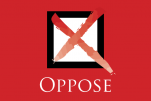The author of a California Chamber of Commerce-opposed proposal allowing the Attorney General and private attorneys to sue taxpayers for perceived tax errors has reintroduced his bill for consideration this year.
AB 2570 (M. Stone; D-Scotts Valley) is a repeat of last year’s AB 1270 (M. Stone; D-Scotts Valley) that stalled in the Senate Appropriations Committee.
AB 2570 expands the False Claims Act (FCA) to allow the Attorney General and private attorneys to sue taxpayers on potential tax errors, consequently creating inconsistent tax enforcement, litigation, and nuisance lawsuits for taxpayers.
The bill has been presented as a method to combat tax fraud, but the fiscal analysis of AB 1270 last year did not identify any estimated increase in revenue to California from expanding the FCA to allow tax-related lawsuits. Moreover, the CalChamber has found no reporting of rampant tax fraud in California or failures by existing tax agencies that would justify incorporating the FCA and private enforcement.
Massive Penalties
Allowing for-profit attorneys into tax enforcement is gravely concerning, especially because the FCA provides massive penalties for the taxpayer and massive rewards for the private litigant. California’s FCA provides the following penalties:
• $5,000–$11,000 per violation, adjusted for inflation.
• An added penalty of two to three times the alleged underpayment.
• Attorney’s fees if the plaintiff succeeds, adding potentially hundreds of thousands of dollars.
Based on these costs, a $200,000 tax dispute under the FCA could therefore quickly balloon into a potential million-dollar dispute, incentivizing plaintiff’s attorneys to bring lawsuits without any merit to scare businesses into paying steep settlements.
Uncertainty for Taxpayers
AB 2570 would create conflicting standards in tax law by ignoring differences between the standards in California’s Revenue and Taxation Code and the standards that are written into the FCA. For example, the FCA utilizes a different definition of fraud than existing tax law, as well as a different statute of limitations.
This will make it even easier for plaintiff’s attorneys to bring nuisance lawsuits against taxpayers because the ambiguity will make it difficult for businesses to determine whether they are in compliance when facing a demand letter, therefore pushing them to pay to avoid the cataclysmic consequences.
Double Jeopardy
AB 2570 fails to include any protection for a taxpayer who has already flagged or resolved a transaction with the taxing agencies. For example, if a taxpayer is audited and no issues are found, the taxpayer still could face an FCA lawsuit years later under this bill.
Moreover, even if the taxpayer had affirmatively flagged an issue for review by the taxing agency—potentially to resolve an ambiguous application of tax law to a transaction—that taxpayer still could face the treble damages and attorney’s fees of an FCA lawsuit related to the very same transaction on which they sought the taxing agency’s guidance.
This double jeopardy issue exacerbates concerns about profit-driven plaintiff’s attorneys; regardless of whether the taxing agencies have signed off on a taxpayer’s documents, that taxpayer is still at risk of a lawsuit.
Incorrectly Codifies Case Law
The FCA currently requires that an alleged misstatement be “material.” If it was a small typo or unimportant point, the courts have concluded that it doesn’t make sense to impose the FCA’s strict penalties because the misstatement did not matter (or was not “material”) to the payment.
Problematically, AB 2570 attempts to codify a California case that is already far more forgiving for plaintiffs than federal law. To make matters worse, AB 2570 incorrectly summarizes the California case law and goes far beyond its actual rule. This mischaracterization could lead to uncertainty for businesses and litigation for those facing an FCA lawsuit.
CalChamber Remains Opposed
The CalChamber opposes AB 2570 because it will introduce plaintiff’s attorneys into tax enforcement, create ambiguity with existing tax law and leave taxpayers in uncertainty as they face conflicting standards and potential double jeopardy. Notably, a CalChamber-led coalition proposed amendments to resolve these issues last year and worked extensively with the author and the Attorney General’s representative, but was unable to resolve them.
Unlike the other areas of law—where the FCA is used in lieu of public enforcement agencies—California already has experienced tax oversight from state agencies to watch for any hypothetical fraud. Tax law is better suited to the present system—where it can be handled by taxing agencies with expertise in taxes, well-developed procedures, and no profit motive.
The bill is eligible to be considered by an Assembly policy committee on or after March 22.


